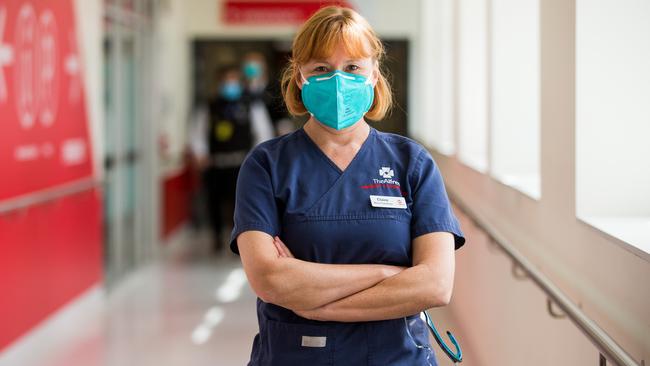Hope for hydroxychloroquine: scientists back trial
Scientists administering hydroxychloroquine to health workers in Victoria and NSW vow to continue.

Scientists administering hydroxychloroquine to hundreds of health workers in Victoria and NSW say they still believe the controversial drug may prevent people contracting coronavirus and have vowed to continue their investigations.
Hydroxychloroquine has been discontinued from the world’s major randomised clinical trials because it has been shown to be ineffective in reducing the severity of COVID-19 or mortality rates from the virus.
But scientists at the Walter & Eliza Hall Institute in Melbourne say the drug may still play a role in preventing people contracting SARS-CoV-2, the virus that causes COVID-19, with scientific studies not yet ruling out the efficacy of the drug as a prophylactic.
Hydroxychloroquine became notorious when US President Donald Trump suggested it was a miracle drug and that he was taking it as a preventative. Months later, The Lancet published a study that claimed COVID-19 patients taking hydroxychloroquine were dying at higher rates and experiencing higher rates of cardiac toxicity. The esteemed scientific journal was forced to retract the study after it emerged it was based on dodgy data.
Co-lead investigator of the COVID-SHIELD study, Marc Pelligrini, said President Trump’s comments on hydroxychloroquine, together with the discredited Lancet paper, had presented some difficulties for Australian scientists. Some people had also failed to draw a distinction between hydroxychloroquine’s lack of efficacy for treating COVID-19 and its potential as a preventative.
“The evidence that shows that the drug doesn’t particularly help with treatment really never deterred us because we always thought that ... if the drug did have a role in preventing people from getting COVID-19, it has to be even before they were exposed to SARS-CoV-2,” said Professor Pelligrini.
“The drug doesn’t appear to be effective in helping people recover more quickly if they’ve got COVID-19, and people often misconstrue that as meaning the drug has got no efficacy whatsoever, no matter what circumstances you use it in.”
Hydroxychloroquine is currently widely used in the management of rheumatoid arthritis. Its exact mechanism of action is not fully understood, but the drug has been shown to inhibit the replication of COVID-19 in test-tube studies and it’s thought it may interfere with the virus’s ability to multiply.
About 230 healthcare workers are currently signed up for the double-blind trial.
Emergency care nurse at The Alfred hospital, Claire Lobb, said she had no hesitation in volunteering.
“Frontline healthcare workers like myself are putting ourselves at risk every day, coming to work to care for patients with COVID-19,” Ms Lobb said. “Hydroxychloroquine is a drug that is cheap and readily available, with very few side effects. If there is a chance this drug could help prevent frontline healthcare workers from getting COVID-19, I think it is important that we do a proper clinical trial to test it.
“I think it is important to have a scientific answer about this drug’s use as a prophylaxis one way or another. Without testing this method, we don’t know whether this drug could be useful or not. If there is even a small chance that this drug could help protect frontline workers, like myself, then I think it’s important that we test it.”
Like all of the participants, Ms Lobb undertook an electrocardiogram to screen for any heart rhythm abnormalities, which can be exacerbated by the drug.
“I wasn’t worried about potential side effects,” she said. “I’m being closely monitored by a health practitioner, so I know I’m in safe hands. I know I wouldn’t have been put on the trial if I was at any risk of major side effects.
“As a nurse clinician, I’m familiar with hydroxychloroquine and its uses so I know it is widely used to treat a number of conditions and that it is relatively well-tolerated with very little side effects, if taken under medical supervision.
“If this study does prove that hydroxychloroquine is useful as a prophylaxis, then I would feel really proud to know that I played a small part in helping my colleagues on the frontline in this pandemic. To have a drug that is cheap and widely available to reduce transmission of the virus to frontline healthcare workers would be really helpful, especially while we are waiting for a vaccine.”








To join the conversation, please log in. Don't have an account? Register
Join the conversation, you are commenting as Logout